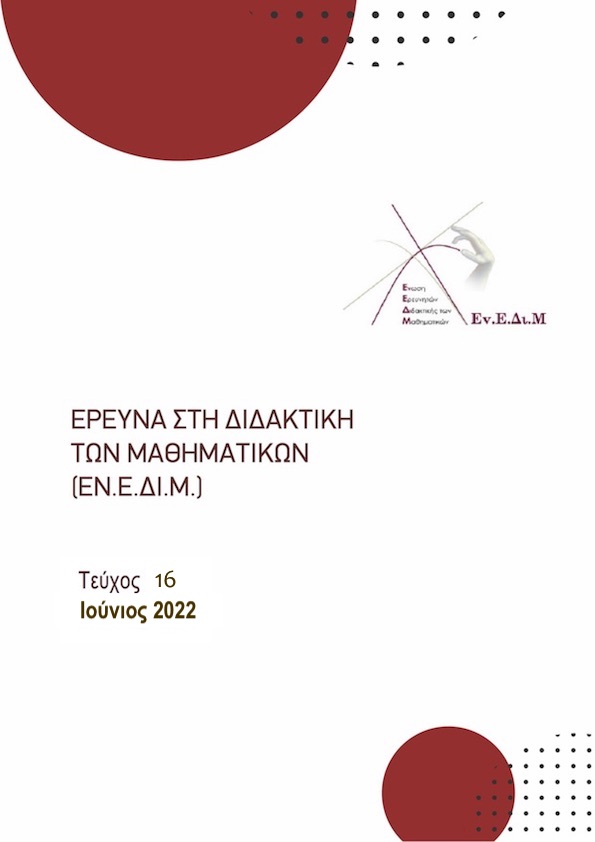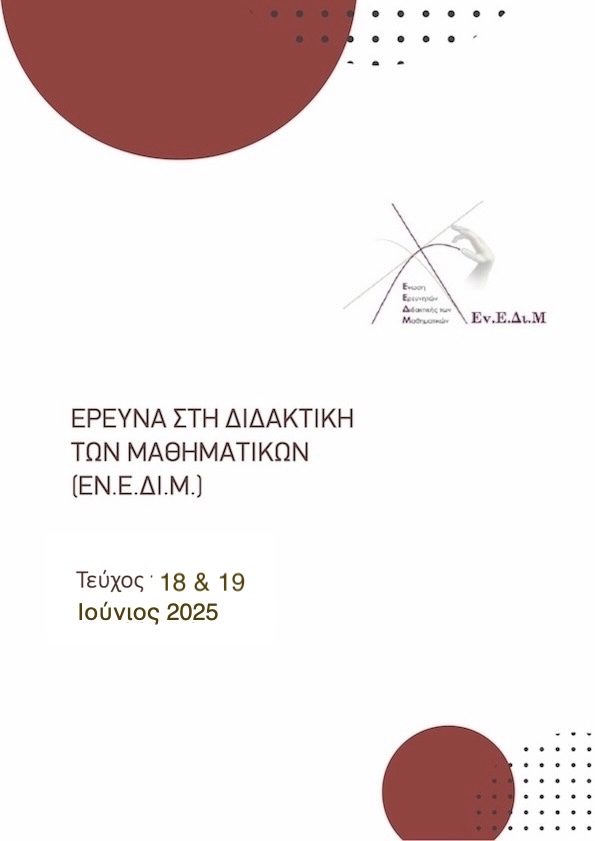ΔΙΑΔΙΚΑΣΙΕΣ ΑΝΑΠΛΑΙΣΙΩΣΗΣ ΣΤΟ ΠΛΑΙΣΙΟ ΕΝΟΣ ΝΕΟΥ ΠΡΟΓΡΑΜΜΑΤΟΣ ΣΠΟΥΔΩΝ ΓΙΑ ΤΑ ΜΑΘΗΜΑΤΙΚΑ ΣΤΟ ΔΗΜΟΤΙΚΟ ΣΧΟΛΕΙΟ

Περίληψη
Οι αναπλαισιώσεις που πραγματοποιούνται κατά την πορεία αξιοποίησης ενός Προγράμματος Σπουδών των Μαθηματικών (ΠΣ) προσδιορίζονται από τους διαφορετικούς λόγους (discourses) από τους οποίους αντλούν στοιχεία οι εκπαιδευτικοί, για να αποδώσουν νόημα στις μαθηματικές διεργασίες που υποστηρίζονται. Στην παρούσα εργασία μελετώνται οι λόγοι δεκατριών εκπαιδευτικών πρωτοβάθμιας εκπαίδευσης στο πλαίσιο μιας ημιδομημένης συνέντευξης που πραγματοποιήθηκε μετά από την ολοκλήρωση της πιλοτικής εφαρμογής ενός νέου/ μεταρρυθμιστικού ΠΣ των Μαθηματικών (2011-2012) στο σχολείο τους. Η ανάλυση των δεδομένων ανέδειξε αντιφάσεις στον λόγο των εκπαιδευτικών που μπορούν να αποδοθούν στις διαδικασίες αναπλαισίωσης, οι οποίες ενεργοποιήθηκαν στην προσπάθεια εξοικείωσής τους με το περιεχόμενο και την εφαρμογή του νέου ΠΣ και υποδεικνύουν ασυνέπειες εντός ή μεταξύ των ποικίλων λόγων που έχουν στη διάθεσή τους.
Λεπτομέρειες άρθρου
- Πώς να δημιουργήσετε Αναφορές
-
Klothou, A., & Σακονίδης Χ. . (2022). ΔΙΑΔΙΚΑΣΙΕΣ ΑΝΑΠΛΑΙΣΙΩΣΗΣ ΣΤΟ ΠΛΑΙΣΙΟ ΕΝΟΣ ΝΕΟΥ ΠΡΟΓΡΑΜΜΑΤΟΣ ΣΠΟΥΔΩΝ ΓΙΑ ΤΑ ΜΑΘΗΜΑΤΙΚΑ ΣΤΟ ΔΗΜΟΤΙΚΟ ΣΧΟΛΕΙΟ . Έρευνα στη Διδακτική των Μαθηματικών, (16). ανακτήθηκε από https://ejournals.epublishing.ekt.gr/index.php/enedim/article/view/30042
- Τεύχος
- Αρ. 16 (2022)
- Ενότητα
- Άρθρα

Αυτή η εργασία είναι αδειοδοτημένη υπό το CC Αναφορά Δημιουργού 4.0.
Οι συγγραφείς των άρθρων που δημοσιεύονται στο περιοδικό διατηρούν τα δικαιώματα πνευματικής ιδιοκτησίας επί των άρθρων τους, δίνοντας στο περιοδικό το δικαίωμα της πρώτης δημοσίευσης. Άρθρα που δημοσιεύονται στο περιοδικό διατίθενται με άδεια Creative Commons BY και σύμφωνα με την άδεια μπορούν να χρησιμοποιούνται ελεύθερα, με αναφορά στο/στη συγγραφέα και στην πρώτη δημοσίευση.


